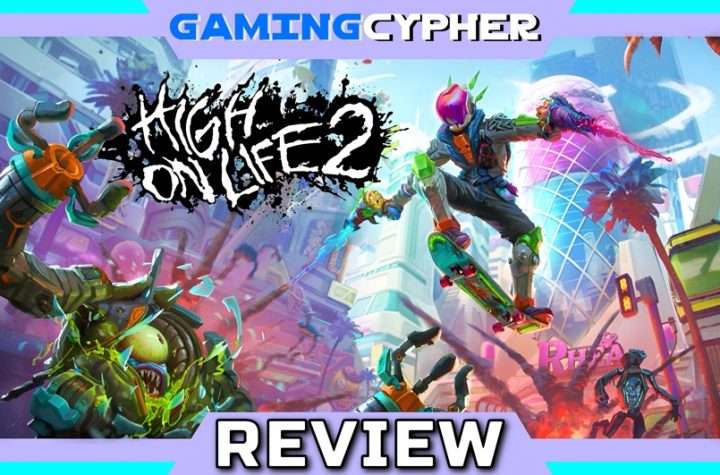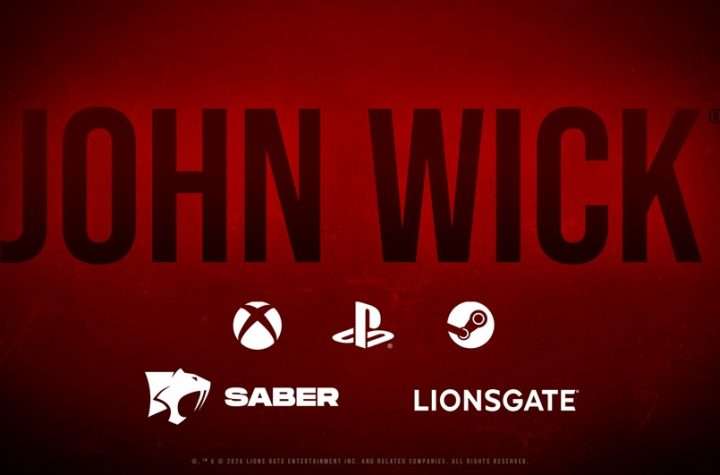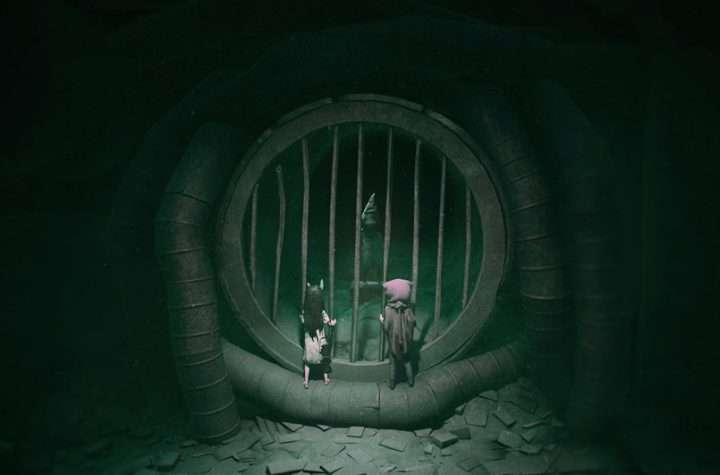
Iris.Fall Composer Thomas Parisch Discusses Creating the Original Score for the Game, Resident Evil 6 & Much More
Video game music has come a long way since the Nintendo days of Tetris and The Legend of Zelda, when there was just minimal sound effects that told the player when they won or lost. With video games now making up a $100 billion global industry, the production value expectation level for games, and game scores for that matter, has been set very high. Composer Thomas Parisch knows firsthand about these expectations as he has worked on massive games including Resident Evil 6 and Honor of Kings. His latest title being Next Studio’s adventure puzzle game, Iris.Fall, for which he scored alongside Edwin Wendler. With so much emphasis being put on video game scores today, we decided to speak with Parisch about his scoring process for Iris.Fall and also some of his previous work. Read the exclusive interview below.
-There are 2d & 3d elements mixed together in Iris.Fall. Did you find yourself layering the score also to fit this same vibe?
TP: That’s an interesting idea, but no, I didn’t layer the music in what could be similar to those visual elements. We certainly had a lot of discussions about how to match the overall vibe of the game’s aesthetics, however. But it was less technical, more emotionally driven. The most important aspect we wanted to capture was to bring to life the surrealist magic of childhood and the old whacky theater while creating an emotional response somewhere between wonder, intrigue and apprehension.
-Did you have a favorite scene or part in this game to score?
TP: There’s a cue called Flower Cart which I enjoyed a lot. It plays after solving a puzzle, a sort of pay-off before the story moves on. There are puppets dancing to the music which is a sort of quirky show tune. For this cue, Koozer, the audio director from Next, wanted to adapt the main theme, an introspective fragile melody full of childhood innocence written for the girl Iris. But here the context was the whacky old theater so the tune had to be transformed to be rather cheerful and also rough and somewhat broken, like it was coming from a street organ or some sort of automated music machine. This transformation was a lot of fun. I think adapting themes to new contexts is one of the most rewarding creative challenges for us composers and this one was a radical and therefore very special one at that…
-You scored Iris.Fall alongside Edwin Wendler, what do you think were each of your strengths for this project?
TP: As Edwin came on board later into the process, it was my job to lay the groundwork in finding the right overall tone, the instrument palette and an appropriate theme. There was quite a bit of brainstorming with Koozer before any composing started just to find those basic but so very crucial building blocks. It was about finding instruments specific to the girl and the theater but also those that could live and build bridges between those two. We needed childhood magic and innocence but also theater wackiness and nostalgia. We used different old upright pianos, toy pianos, bells reminiscent of music boxes but also accordions, light percussions and violins. Koozer really liked the idea of old street organs and any music machine like player pianos and theater orchestrions. I can’t thank him for his boldness enough for making a leap into a completely unknown area to widen our palette and make it more unique as he encouraged us and gave us the budget to build our own unique instrument just for that score. Inspired by those old whacky music making contraptions, I called a good friend of mine, Yoon Lee, who is not only a brilliant multi-instrumentalist but also a builder with an inventor’s mind. In the end, he designed and built a sort of chromatic zither which we played with little hammers, and he also modified a violin to sound like an old rattling gramophone. In addition, we came up with some basic atmospheric background soundscapes early on that ended up in a lot of cues as sort of glue and canvas creating consistency. Once those main creative decisions were made the actual composing could begin. At this point, Edwin came on board as I had to jump on another project suddenly. Edwin really did an amazing job immersing himself into the music world to follow the overall direction while adding his personal touch to the many cues he brilliantly composed.
-Because the player controls the sense of timing and pacing in Iris.Fall, about how many different score variations do you think you and Edwin created?
TP: Actually, there are a few jingles that have several versions but those are mostly for variety rather than adapting to different game play pacing and timing I think. As far as timing considerations, most cues fall into the common categories of either one-shot or looping cues. Then there are a couple that are actually synced as well…
-You work on a lot of Tencent’s titles such as Honor of Kings, Iron Knight and Moonlight Blade coming out of China. Is it at all challenging to give these scores a sound that plays universal all over the world?
TP: It definitely is one of the main challenges and considerations when tackling these projects. For me personally, this aspect is actually the most rewarding and fun parts when I work on these Chinese titles. Because in the way that specially Moonlight Blade and Honor of Kings need to incorporate the Chinese music tradition but need to live in the western scoring world also, so these projects push me into new realms of music creation. Honor of Kings for example could be just another big action-packed epic adventure score, but in requiring me to use traditional Chinese instruments it offers something new. Moonlight Blade, even more so, demands tribute to be paid to Chinese traditions, all the while trying to take it out of the purely traditional and bring it into a more global context of world music or ethnic scores. So, I think, for most of these projects that approach of bringing together both worlds, the Chinese tradition with the western orchestra and modern score elements, is the key to creating a globally accessible score. I hope it worked…
-You were part of the famous Resident Evil family, scoring Resident Evil 6. What was the best part of that experience and do you think you will get a chance to work on another one?
TP: It was simply an honor to work on this title at a point when I was fairly new to scoring for games in general. There were many great aspects of that project… to see how such a massive title is approached by a lead composer handling a team of in-house and outside composers, to learn about the production process spanning a few years, to learn about the unique requirements for music when facing sophisticated implementation… I think the best part, however, was to be able to orchestrate and record some of the music at the end with a live orchestra in Sydney. That was not only a great pay-off but also a nice way of wrapping things up since it was the first time we actually met the Japanese team in person, it was only video chats and tons of meal up to that point. I would certainly be more than happy to work on the Resident Evil franchise again, even though there are no immediate plans…
-A general question, how much of an opportunity do you get to play the games before you compose their music?
TP: Usually it is not me playing at all, actually, rather it would be video captures of someone else paying, haha… But often it is even less than that as most titles are still being finished when I start my work. Sometimes I only get stills to show characters or the environment. I also like written descriptions to go along with that actually. One supervisor from Tencent whom I work with regularly is doing a great job with describing subtexts and intentions beyond the surface where visual media, especially when half finished, often fail.
-Are there any times when your music has inspired the developers to alter any mechanics or gameplay decisions?
TP: I don’t think I ever triggered a drastic change to the gameplay with my music. But, depending on how well I know the client, I have proposed alternate solutions to dramatic scoring problems and some of them have stuck. Say there was a plan of several cues for different stages of intensity for a battle, I might have ideas beyond the original plan of layering loops or developing several loops as alternate versions to be triggered depending on gameplay. But these things all depend on the client and also the independence of the audio supervisor and, of course, programming decisions I might not be aware of. So these suggestions are often hit or miss…
Iris.Fall is available for PC via Steam.
I have always enjoyed playing video games and am a programming team lead for a video game company. I co-founded Gaming Cypher because I enjoy the gaming community and would like to provide the best news service around. Feel free to ask me any questions and I will make sure to get back to you quickly.





More Stories
JOHN WICK Video Game Announced by Lionsgate and Saber Interactive during Sony State of Play Showcase
GTA Online this Week Features Lunar New Year Celebrations, The Grotti Itali Classic, Plus More
Supermassive Announces May 12th Launch Date for Directive 8020 on Steam, PlayStation 5, and Xbox Series X|S